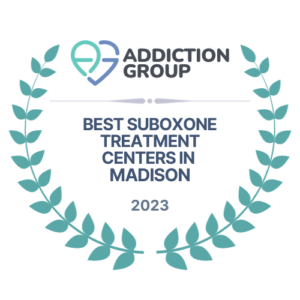Addiction is a complex and persistent condition that affects millions of people worldwide. Whether it’s substance abuse, behavioral disorders, or any other type of addictive behavior, the consequences can be devastating for the individual and their loved ones. Despite the best efforts of medical professionals and support networks, many individuals struggle to overcome their addiction and reclaim their lives.
Currently, the standard treatment for addiction involves a combination of behavioral therapy, medication, and support from friends and family. While this approach has been proven to be effective for some people, many others struggle to fully recover from their addiction and relapse back into their harmful behavior.
Recent studies and anecdotal evidence suggest that spending time in nature can play a significant role in addiction recovery and support ongoing sobriety. This highlights the need for new and innovative approaches to addiction treatment, including the use of nature as a therapeutic tool. By incorporating the power of nature into recovery, individuals struggling with addiction can gain new perspectives, overcome their cravings, and build a stronger sense of self-efficacy, leading to a more successful and sustainable recovery.
Spending time in nature has the potential to play a significant role in the recovery journey of individuals struggling with addiction. In recent times, the significance of nature-based treatments has been gaining recognition, and it’s seen as a complement or alternative to conventional methods of addiction treatment. The idea of incorporating nature into the healing process is a new and exciting approach, and its impact is yet to be fully explored and understood.
In this article, we will explore the “Power of Nature in Overcoming Addiction,” delving into the various ways that nature can help individuals in their journey to recovery and a better life.


Physiological Benefits of Being in Nature
Reduced stress levels
Spending time in nature has been shown to have a calming effect on the body, reducing stress levels. Studies have indicated that exposure to nature can lower levels of cortisol, the hormone associated with stress, and increase feelings of calm and relaxation. This reduction in stress can have a positive impact on addiction recovery, as stress can trigger cravings and make it more difficult to resist temptation. By reducing stress levels, nature can help individuals in recovery maintain their sobriety and stay on track with their recovery goals.
Increased feelings of calm and relaxation
Being in nature has been shown to have a calming effect on the body and mind. Research has shown that exposure to natural environments can decrease levels of the stress hormone cortisol and increase feelings of calm and relaxation. This is thought to be due to the soothing sounds of nature, such as the rustling of leaves or the sound of birds chirping, and the visual beauty of the environment, which can have a positive impact on the nervous system. Additionally, spending time in nature has been shown to increase overall feelings of well-being and happiness, which can be especially beneficial for those in addiction recovery, who may be struggling with feelings of depression, anxiety, and stress.
Improved sleep patterns
Nature has a calming effect on the body and mind, promoting relaxation and reducing anxiety levels, which can positively impact sleep patterns. Spending time in nature has been shown to have a positive effect on sleep quality and duration, leading to better and more restful sleep. This is because being in nature allows the mind to slow down and unwind, reducing the levels of cortisol, a hormone associated with stress, which can negatively impact sleep. Improved sleep is essential for addiction recovery as it helps regulate mood, boost energy levels and improve mental clarity, all of which are important factors in the healing process.
Psychological Benefits of Being in Nature
Improved mood and cognitive function
Spending time in nature has been linked to a variety of psychological benefits, including improved mood and cognitive function. Being in nature can have a profound effect on our mental state, helping to reduce anxiety and depression, as well as improving overall mental well-being. Research has shown that even just spending time in green spaces, such as parks or forests, can have a positive impact on our mood and cognitive function. This is thought to be due to the calming and grounding effect of nature, which can help to clear our minds, reduce stress and improve our overall outlook on life. Additionally, engaging in outdoor activities, such as hiking or camping, can help to boost our self-esteem and sense of accomplishment, further improving our mental state.
Enhanced sense of connection and mindfulness
Being in nature has a grounding effect that helps individuals become more present and aware of their thoughts and surroundings. This shift in awareness can foster a greater sense of connection to self, others, and the environment. As a result, people tend to feel more mindful, engaged, and fulfilled when they spend time in nature, which can help to improve their overall mental health and well-being. The sense of peacefulness that comes with being in nature can help to reduce negative thoughts and emotions, and provide a sense of perspective that can be helpful in overcoming addiction.
Increased motivation and inspiration
Spending time in nature can also have a positive impact on a person’s motivation and inspiration levels. Being surrounded by natural beauty can lead to a heightened sense of awe, wonder, and appreciation for life, which can be particularly helpful for those struggling with addiction. The peacefulness and serenity of nature can provide a sense of calm and stability, which can foster the motivation needed to make positive changes in one’s life. Being in nature can give individuals a chance to reflect and gain a fresh perspective, helping to clarify their goals and aspirations and encouraging them to work towards their recovery.
These benefits can have a positive impact on addiction recovery in several ways. By reducing stress levels and increasing feelings of calm, individuals can feel less overwhelmed and better equipped to manage cravings and withdrawal symptoms. Improved sleep patterns can also support the healing process and improve overall physical and mental health.
The improved mood and cognitive function, enhanced sense of connection and mindfulness, and increased motivation and inspiration can help individuals stay committed to their recovery goals, develop new coping strategies, and build a stronger sense of self-worth and self-esteem. Overall, the power of nature in overcoming addiction can play a significant role in supporting a successful and sustainable recovery process.
How to Incorporate Nature into Addiction Recovery
Types of outdoor activities that can support addiction recovery
1. Hiking
Hiking is a popular outdoor activity that can support addiction recovery. Not only does it provide a way to connect with nature and experience its physical and psychological benefits, but it also provides a form of exercise that can help improve overall health and wellbeing. Hiking can provide a sense of accomplishment and boost self-esteem, which can be important factors in overcoming addiction.
2. Camping
Camping is another outdoor activity that can support addiction recovery. Spending time in a natural environment, away from the distractions and stressors of everyday life, can provide a sense of calm and relaxation that can help combat cravings and improve overall mental health. Camping can also provide opportunities for physical activity and socializing with others, which can help to build a supportive network and increase motivation in recovery.
3. Gardening
Gardening is a low-impact form of physical activity that can have a positive impact on addiction recovery. Being outside and tending to plants can provide a sense of purpose and connection to the natural world, while also helping to reduce stress and improve mood. Gardening can also be a therapeutic and meditative activity, allowing individuals in recovery to focus on the present moment and find a sense of peace and mindfulness.
4. Wildlife observation
Wildlife observation is another outdoor activity that can support addiction recovery. This involves observing, appreciating and learning about the plants, animals and ecosystems that make up the natural world. Wildlife observation can provide a sense of awe, wonder and connection to the greater world around us. Spending time in nature has been shown to improve mood, reduce stress and anxiety and provide a source of inspiration. Observing wildlife can promote mindfulness, which can be especially helpful in addiction recovery. Mindfulness, or the practice of being fully present in the moment, can help individuals to let go of negative thoughts and feelings and focus on the present moment. This can be an important tool in managing cravings and avoiding relapse.
5. Other outdoor activities
- Rock climbing
- Surfing or paddle boarding
- Mountain biking
- Kayaking or canoeing
- Fishing or hunting
- Horseback riding
- Snow sports (skiing, snowboarding, snowshoeing)
- Beach activities (swimming, sunbathing, beach volleyball)
- Botanical gardens or arboretums
- Nature photography or bird watching
Best practices for engaging with nature during recovery
There are a few best practices to keep in mind when incorporating nature into addiction recovery:
1. Setting achievable goals
Setting achievable goals is important when incorporating nature into addiction recovery. By setting goals, individuals can focus their efforts and measure their progress, which can boost motivation and help build a sense of accomplishment. Goals can range from simply spending a set amount of time in nature each day to more challenging activities such as completing a multi-day hike or camping trip. Whatever the goal, it is important to make sure it is realistic, attainable, and aligned with the individual’s overall recovery journey. This will help ensure the experience is positive and supportive, rather than overwhelming or discouraging.
2. Finding a supportive community
Finding a supportive community while engaging in nature activities can be crucial in addiction recovery. Being part of a group that shares similar interests and experiences can provide a sense of belonging and encouragement. This community can serve as a source of accountability and motivation to maintain sobriety and continue making progress in recovery. It’s also a great opportunity to make new connections and build lasting relationships with others who understand the challenges of addiction recovery. Joining outdoor groups, such as hiking or camping clubs, can be a great way to find a supportive community. These groups often organize trips and events that offer opportunities for individuals to connect with others, challenge themselves, and engage with nature in a safe and supportive environment.
3. Building a routine around nature-based activities
Building a routine around nature-based activities can help to establish a regular, healthy habit that supports addiction recovery. This can involve scheduling regular outdoor trips or setting aside specific times each day to engage with nature, such as taking a walk in a nearby park or practicing mindfulness in a natural setting. The key is to find a routine that works best for you, and to make it a consistent part of your recovery journey. Incorporating nature into your daily life can also provide a sense of structure and stability, which can be especially helpful for individuals who are in early stages of recovery.
4. Seeking professional guidance when needed
It’s important to understand that overcoming addiction is a complex and ongoing process that may require the support of mental health professionals and addiction specialists. This is especially true if the individual has a co-occurring mental health disorder or has a history of severe substance abuse. Engaging with nature can certainly be a helpful complement to traditional treatment, but it should not be relied on as a sole method of recovery. Seeking professional guidance can ensure that the individual is receiving the best possible care and support for their unique needs and circumstances.
Possible Challenges and Limitations of Using Nature in Addiction Recovery
Accessibility and Affordability of Nature-based Activities
Spending time in nature can be a great benefit for addiction recovery, but it’s not always accessible or affordable for everyone. Depending on where you live, getting to natural areas may require traveling long distances, and engaging in activities such as hiking or camping can involve costs for gear and transportation. For those who live in urban areas, access to nature may be limited and exposure to the environment may not be as frequent. These challenges can make it difficult for some people to fully realize the benefits that nature has to offer for addiction recovery. It’s important to acknowledge these challenges and find ways to overcome them, whether through community resources or financial support.
Potential for Relapse
Relapse is a common occurrence in addiction recovery, with studies showing that between 40-60% of individuals in recovery will experience a relapse at some point. However, using nature as a tool in addiction recovery does not guarantee success and can also present its own set of challenges. For example, being in nature may trigger cravings for drugs or alcohol, or may lead to feeling isolated, which can be a risk factor for relapse. It is essential that individuals in recovery are aware of these potential risks and are equipped with the necessary tools and support to navigate them. Incorporating nature-based activities into a comprehensive recovery plan that includes other forms of treatment, such as therapy or support groups, can help mitigate the risk of relapse.
Importance of Integrating Nature-based Activities with Other Forms of Treatment
Integrating nature-based activities with traditional forms of addiction treatment is crucial for maximizing the benefits and reducing the risks of using nature in addiction recovery. While spending time in nature can offer a range of physiological and psychological benefits, it is not a standalone solution to addiction. Rather, it should be used in conjunction with other forms of treatment, such as therapy, counseling, and medication-assisted treatment, to create a comprehensive and holistic approach to recovery.
For example, participating in nature-based activities can help build resilience and coping skills, but therapy and counseling can help address the underlying emotional and behavioral factors that contribute to addiction. Medication-assisted treatment, on the other hand, can help manage withdrawal symptoms and reduce the risk of relapse. By combining these different forms of treatment, individuals can benefit from the complementary effects of nature-based activities and traditional forms of treatment, making their recovery journey more effective and sustainable.
Conclusion
The power of nature in addiction recovery is a topic that deserves attention and exploration. By examining the science behind why being in nature can be beneficial for those in recovery, we can understand the physiological and psychological effects that being in nature can have on the human body and mind. This knowledge can help us to incorporate nature into our recovery programs in meaningful ways.
It is up to each individual to experiment and determine what works best for them. Engaging with nature can provide a supportive environment for addiction recovery and help individuals feel calmer, more relaxed, and more connected to themselves and the world around them. Nature has the potential to be a powerful tool in addiction recovery, and it is important to continue exploring and harnessing its benefits.
Interested to learn more? Read more related articles: What To Expect From Suboxone Treatment Side Effects
Sources:
https://americanaddictioncenters.org/blog/3-day-effect-nature-can-aid-your-recovery
https://www.gatewayfoundation.org/addiction-blog/recovering-naturally-how-spending-time-in-nature-can-help-recovery/
https://www.climateaction2016.org/8-ways-nature-help-recovery-from-addiction/













